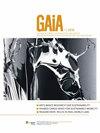评估社会影响:跨学科研究领域评估方法的经验教训
IF 1.9
4区 社会学
Q4 ENVIRONMENTAL SCIENCES
Gaia-Ecological Perspectives for Science and Society
Pub Date : 2023-05-20
DOI:10.14512/gaia.32.1.17
引用次数: 1
摘要
实现社会效应对于跨学科研究至关重要。在这篇文章中,我们提出了跨学科研究影响评估的关键特征。我们比较了可持续性、公共卫生和发展研究方面的不同方法,以推进共同学习并确定共同挑战。为了解决复杂的社会问题,跨学科方法越来越多地被用于研究,以实现科学和社会效果。比较不同影响评估方法的经验可以实现跨研究领域的相互学习。我们概述了不同方法的关键特征,以评估跨学科研究在公共卫生、发展和可持续性领域的影响;揭示应用这些方法的共性和挑战;并建议如何通过借鉴特定方法和领域的例子来克服这些问题。我们在概念框架以及数据收集和分析方面发现了共性,从中我们得出了以下关键挑战:1。证明因果关系的主张,2。包括对效果的多重视角。持续不断的监测和评价。我们得出的结论是,跨学科研究的影响评估必须捕捉多个参与者、过程和影响途径的相互作用和影响,以促进学习和实证严谨性,并建议资助者如何支持这一努力。本文章由计算机程序翻译,如有差异,请以英文原文为准。
Assessing societal effects: Lessons from evaluation approaches in transdisciplinary research fields
Achieving societal effects is crucial for transdisciplinary research. In this article, we present key characteristics of impact evaluation of transdisciplinary research. We compare different approaches in sustainability, public health, and development research to advance joint learning
and define common challenges.To address complex societal problems, transdisciplinary approaches are increasingly being employed in research to achieve both scientific and societal effects. Comparing experiences of different impact evaluation approaches enables mutual learning across research
fields. We provide an overview of the key characteristics of different approaches to assess the impact of transdisciplinary research across the fields of public health, development, and sustainability; uncover commonalities and challenges in applying these approaches; and suggest how they
can be overcome by drawing on examples from specific approaches and fields. We find commonalities in terms of conceptual framing as well as data collection and analysis from which we derive the following key challenges:1. evidencing causal claims, 2. including multiple perspectives on
effects, and 2. sustaining continuous monitoring and evaluation. We conclude that impact evaluation of transdisciplinary research must capture the interplay and effects of multiple actors, processes, and impact pathways to promote learning and empirical rigour and suggest how funders can support
this endeavour.
求助全文
通过发布文献求助,成功后即可免费获取论文全文。
去求助
来源期刊

Gaia-Ecological Perspectives for Science and Society
ENVIRONMENTAL SCIENCES-
CiteScore
2.30
自引率
18.80%
发文量
43
审稿时长
>12 weeks
期刊介绍:
GAIA is a peer-reviewed inter- and transdisciplinary journal for scientists and other interested parties concerned with the causes and analyses of environmental and sustainability problems and their solutions.
Environmental problems cannot be solved by one academic discipline. The complex natures of these problems require cooperation across disciplinary boundaries. Since 1991, GAIA has offered a well-balanced and practice-oriented forum for transdisciplinary research. GAIA offers first-hand information on state of the art environmental research and on current solutions to environmental problems. Well-known editors, advisors, and authors work to ensure the high quality of the contributions found in GAIA and a unique transdisciplinary dialogue – in a comprehensible style.
 求助内容:
求助内容: 应助结果提醒方式:
应助结果提醒方式:


